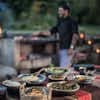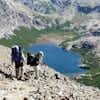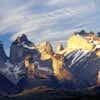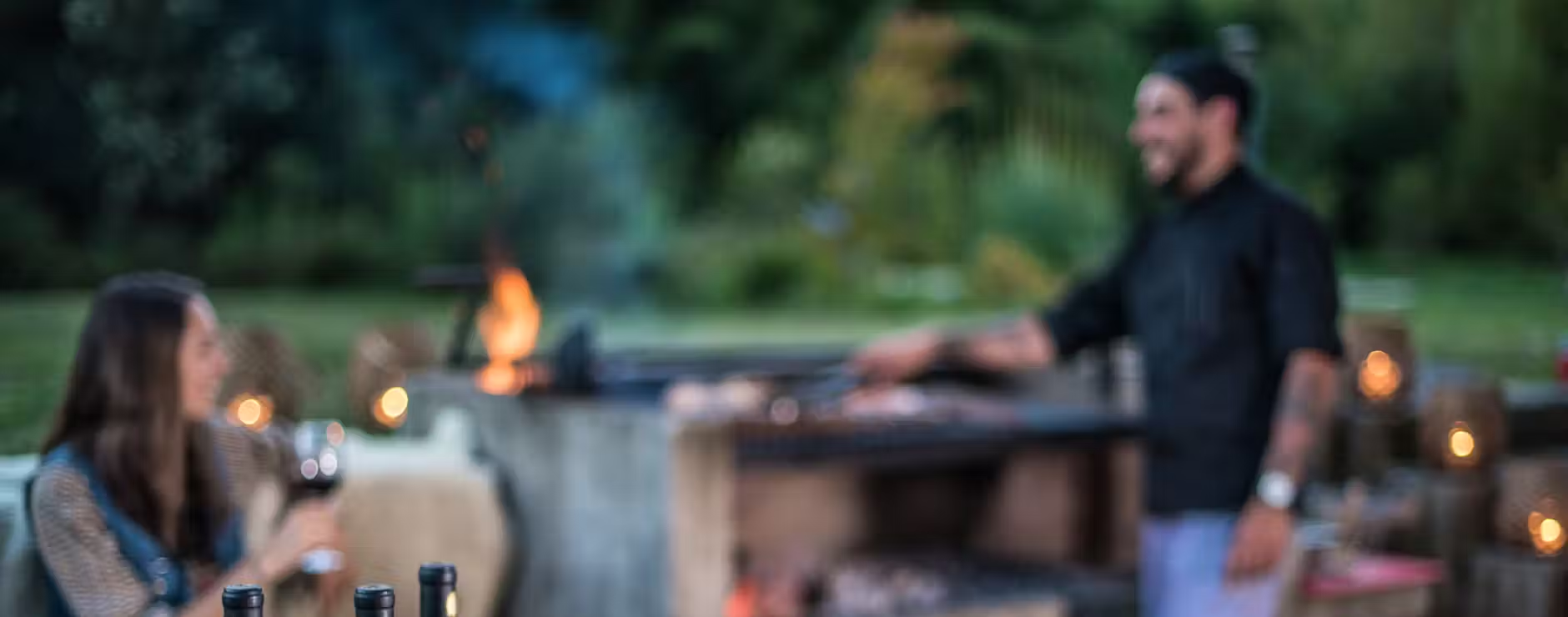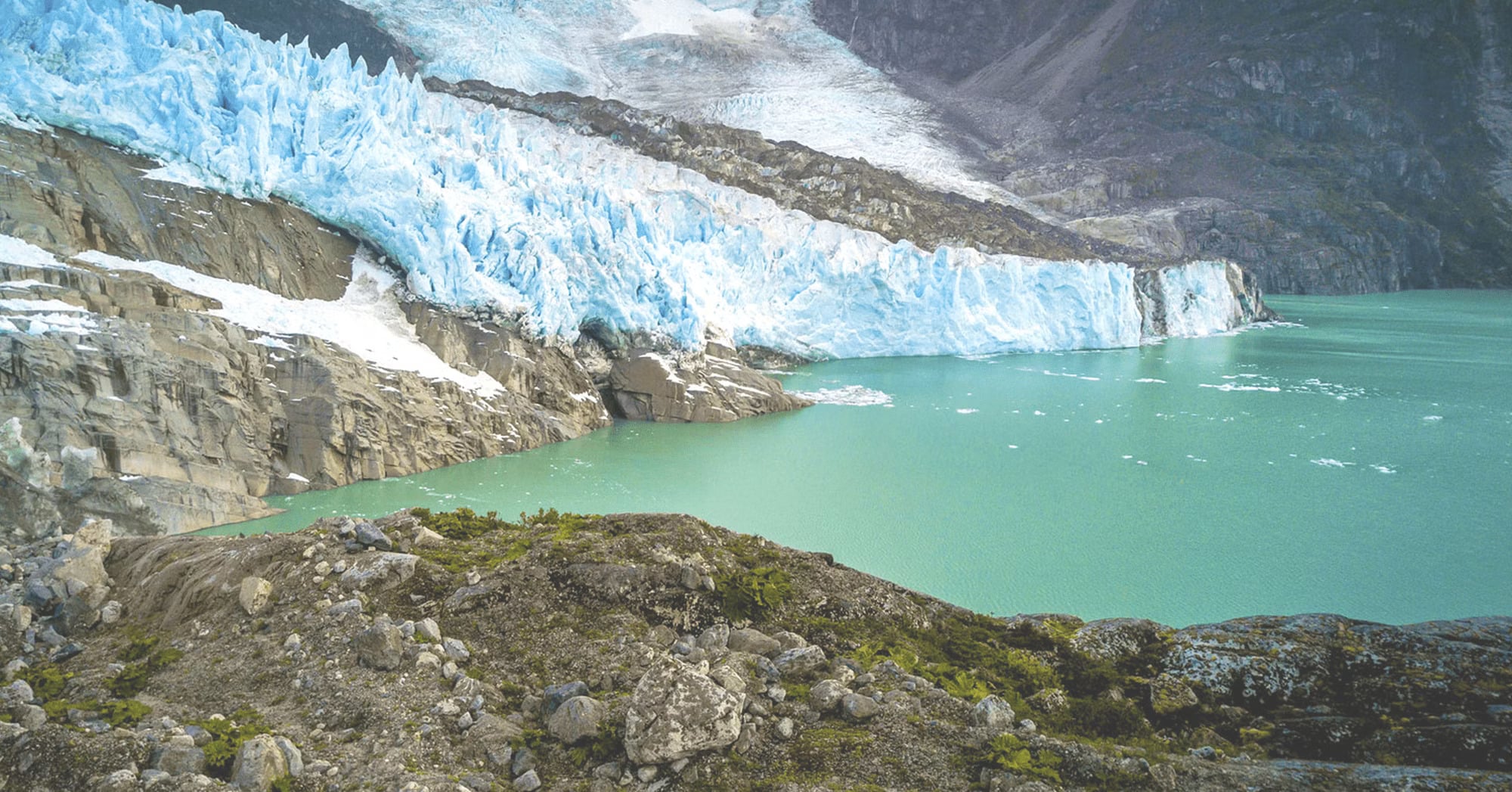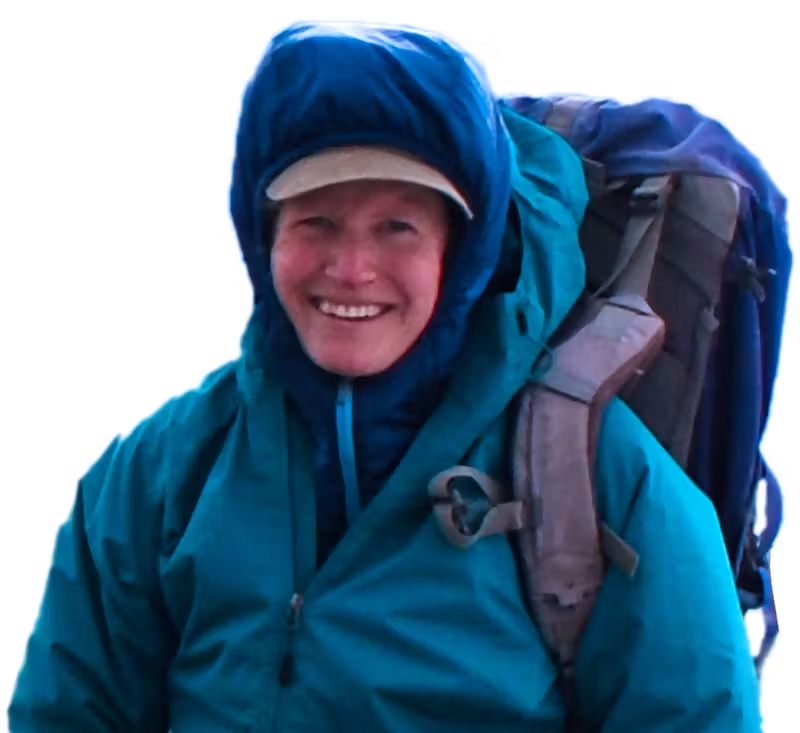Internet, phones & electricity
Coverage
There is almost complete coverage in large towns and cities across Patagonia, but when travelling between cities, cruising in the fjords or hiking in national parks there is little to no signal, and cell phones are not recommended as a reliable form of communication.
There are a lot of black spots due to the general topography of the land, and even a gust of wind (which is not uncommon!) can cause problems with signal.
Many cafes, restaurants and hotels in towns and cities have WIFI. More remote estancias and lodges may have limited signal and even limited electricity.
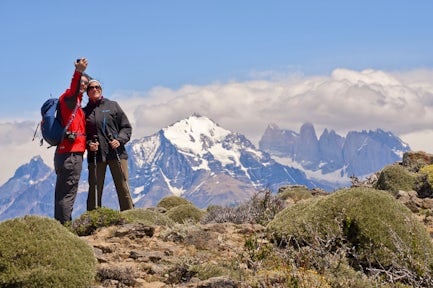
SIM cards / eSIMS
Patagonia's remote landscapes can pose some connectivity challenges. We recommend ditching the bulky (and easy to lose) SIM cards and consider eSIMs for convenience and flexibility.
You can integrate an eSIM with your compatible smartphone and avoid the hassle of physical card swaps. Look online or ask your phone network provider for more information. You could save on roaming charges by choosing affordable data packages tailored for international travellers.
Pre-departure prep: be aware that eSIM availability may still vary. So download essential apps and maps beforehand—when you have decent WIFI—to get ahead.
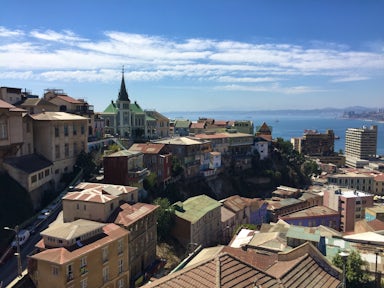
Start out in sunny Valparaiso
Dialling codes
The style of dialling codes in Argentina and Chile is completely different, and far from simple! Read on to decipher the system.
-
Chile - landlines
International dialling code:
0056
- 2 - Santiago
- 45 - Pucon
- 65 - Puerto Varas
- 67 - Coyhaique
- 61 - Punta Arenas & Puerto Natales
-
Chile - cell phones
-
Argentina - landlines & cell phones
- 11 - Buenos Aires
- 2901 - Ushuaia
- 2902 - El Calafate
- 2962 - El Chalten
- 2944 - Bariloche
- 2972 - San Martin
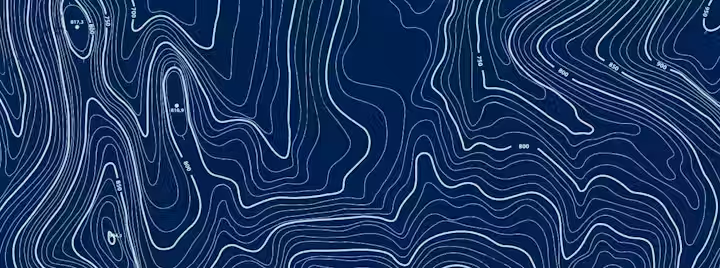
Swoop says
Check with your phone provider before travelling to see how much it will cost you to use your phone abroad in order to avoid any nasty surprises.
Sockets
Chile
A Chilean plug socket has two cylindrical prongs. The voltage is 220V.
Argentina
The Argentinian plug socket is a bit more unusual with holes for three flat prongs. However, one prong doesn't have a function, so adaptors only include two prongs. Some plugs do support the two cylindrical prong plugs that the Chileans use. The voltage is 220V.
When travelling in Patagonia, it's usually best to buy a multi-adapter that includes adaptors for both Chile and Argentina in one.

Swoop says
Please note that the two round pins that fit a Chilean plug socket are generally slightly slimmer than some European plugs. These are generally known as Type C and are approximately 4mm in diameter versus the European type F, which are 4.8mm. Factor this in when choosing a plug adaptor!
Staying healthy
What to do if you're ill
In the event of severe illness or an accident that requires medical attention, all private hospitals offer first-class medical attention, facilities and treatment, but make sure your travel insurance covers such necessities.
You can read more about travel insurance, which is essential when travelling with Swoop, in our insurance guide.
Emergency numbers
If you require emergency services when travelling in Patagonia, the numbers will be different depending on whether you are in Argentina or Chile.
See below as to which numbers you will need for which country.
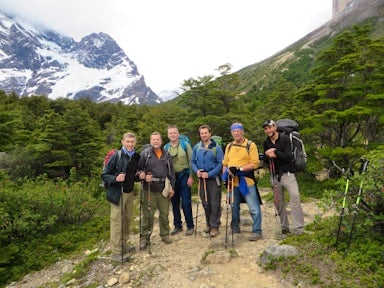
Group hike, Torres del Paine
Argentina
- British consulate in Buenos Aires emergency telephone number: +54 (0)11-4808 2200
- US embassy telephone number: +54 (0)11 5777-4533
- Police: 911
- Ambulance: 107
- Fire: 100
Chile
- British consulate in Santiago emergency telephone number: +56 2-2370 4100
- US embassy emergency telephone number: +56 (2) 2330-3000
- Police: 133
- Ambulance: 131
- Fire: 132
- Mountain Rescue: 699 4764
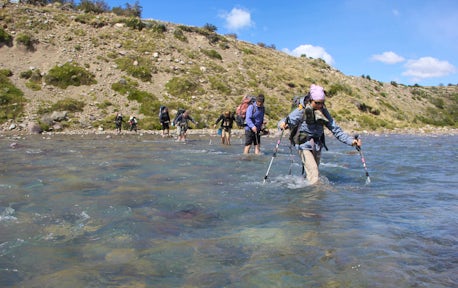
Food allergies & intolerances
Patagonia is a vast region with great swathes of remote wilderness. When you are away from the larger towns or cities, please bear in mind that it is much harder for guides, refugios or other parties to cater to food allergies or intolerances in the wild and with limited resources.
If you have a serious food allergy, you should approach your time in Patagonia with caution, especially in remote eating scenarios. Whilst our partners on the ground will do their best to cater to your needs, they will not be used to being as fastidious and careful as you may need to be on a day to day basis.
It is also worth mentioning that celiacs might not always have many options, especially outside of the larger cities.
If you are concerned about your time in hotels, towns or cities, or on board an adventure cruise, we would suggest speaking with the hotel or ship manager and getting a message to the head chef or head waiter as early on in the experience as possible.
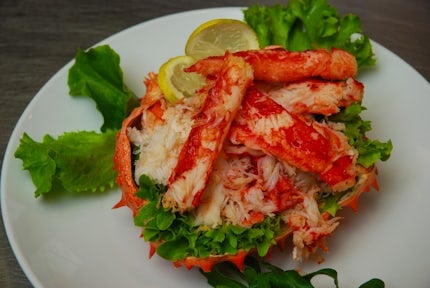
Water
Chile and Argentina are very clean countries with very high levels of hygiene in most areas. A seasoned traveller would drink the tap water in both countries, but if you are just on a two week holiday you might prefer not to risk it and stick with bottled water.
It's a good idea to take a water bottle as most hotels will have large drinking water containers from which you will be able to refill your bottle.
All water in Torres del Paine and Los Glaciares National Parks is safe for consumption without filtering or boiling.
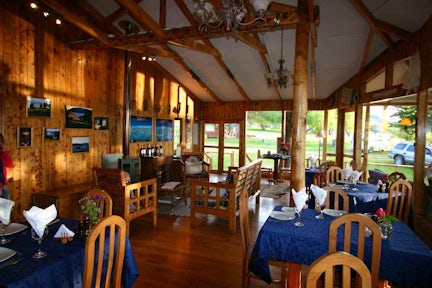
Getting around in Patagonia
Buses
You may not have thought about getting around Patagonia by bus, but it's a (perhaps surprisingly) smooth mode of transport and could be worth considering when deciding how to get from point A to point B.
Swoop Patagonia Specialist, Sarah, who has lived in Chile for over a decade, wrote a fantastic and informative blog article all about exploring the region by coach. We recommend having a read so that you can get a feel for what it's like.
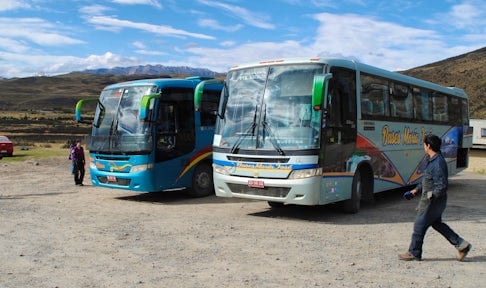
Driving in Patagonia
Driving licences
Most nationalities visiting Argentina and Chile will just need a regular driving licence to rent a car. However, you will be required to purchase an international driving licence if your driving licence does not have a photograph.
You may also be required to get an international driving licence if you have a licence that does not use a Roman script (such as a Russian licence) or you have a photocard licence.
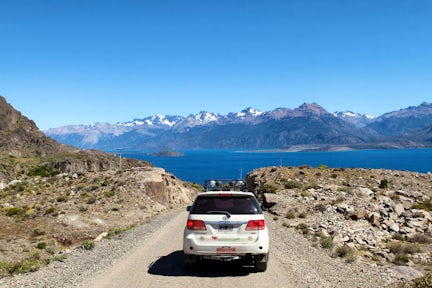
Roads
Although a lot of the highways and bigger roads in Patagonia are well paved, a lot of the roads (such as the roads into the national parks) are gravel and dirt. Large parts of the famous Ruta 40 are unpaved, and so stretches of it will require a 4x4 in order to drive it. It is also important to give yourself a lot of time to get from one place to another as Patagonia's unpredictable weather has the ability to make your journey last a lot longer than you think it will.
It can be a very long distance between petrol stations, so it is highly advised that you fill up whenever you see one.
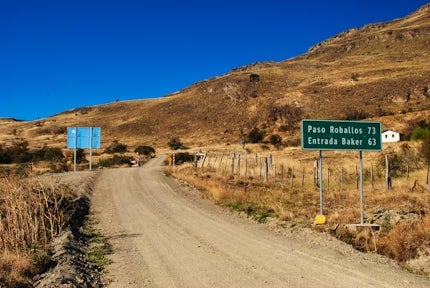
Carretera Austral
Laws
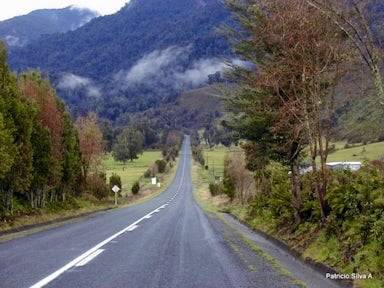
Speed limits
The speed limits in Argentina are as follows:
- 40kmph on residential streets
- 60kmph on urban main roads
- 110kmph in the countryside
- 120-130kmph on highways (semiautopista and autopista)
The speed limits in Chile are as follows:
- 40-60kmph in town
- 100kmph on out-of-town highways
- 100-120kmph on the motorways
Minimum driving age
In Argentina, the minimum driving age is 18, and there are also age restrictions with some car hire companies. In Chile, the minimum driving age is also 18 but you will have to be at least 21 to hire a car, and you will probably still have to pay a young drivers' excess.
Kit requirements
In Argentina, you must have two warning triangles, a rigid tow bar, a first aid kit, a fire extinguisher and a red reflective sticker on the rear of the car. Hire car companies usually make sure these are included but make sure you check before you set off.
Drinking & driving
The legal limit for blood alcohol in Argentina is 50mg per 100ml of blood, and in Chile, it is 30mg per 100ml of blood. For most people, one glass of wine or one beer will take them over this limit.
How to minimise your impact in Patagonia
Laundry
Doing your laundry whilst midway through your trip couldn't be easier as long as you have time. It is advisable in order to keep the weight of your luggage down. Here are our top tips:
- If you are staying in an all-inclusive hotel it tends to be expensive as they will charge per item
- Mid-range hotels are more affordable as they will offer a laundry service that charges per kilo
- There are also plenty of laundrettes where you can drop off a bag and pick it up later – ask at your hotel reception where to go if they don't offer the service themselves
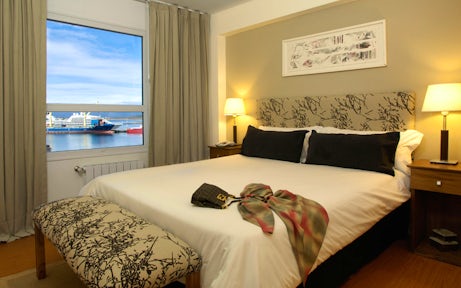
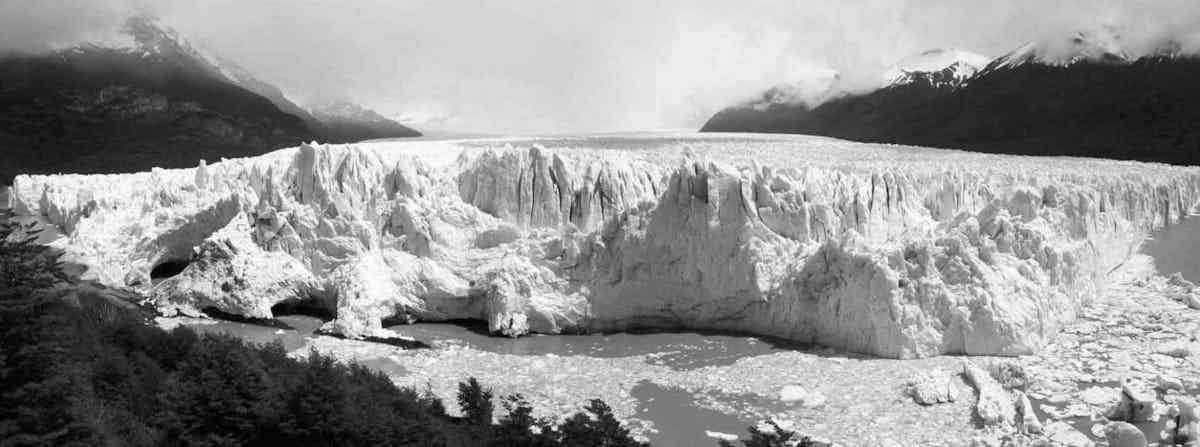
What our customers think of Life in Patagonia
Review:
Swoop. Your adventure story.
The Patagonia experts
We are guides, guardians, and travellers with over 400,000 hours of lived experience in Patagonia.
Any adventure, so long as it’s yours
From a world of options, we’ll help you discover your perfect trip.
B Corp certified
We care deeply about protecting Patagonia, that’s why 1% of our revenue goes to conservation.
With you at every step
Our dedicated support throughout will make sure you have the experience of a lifetime.

